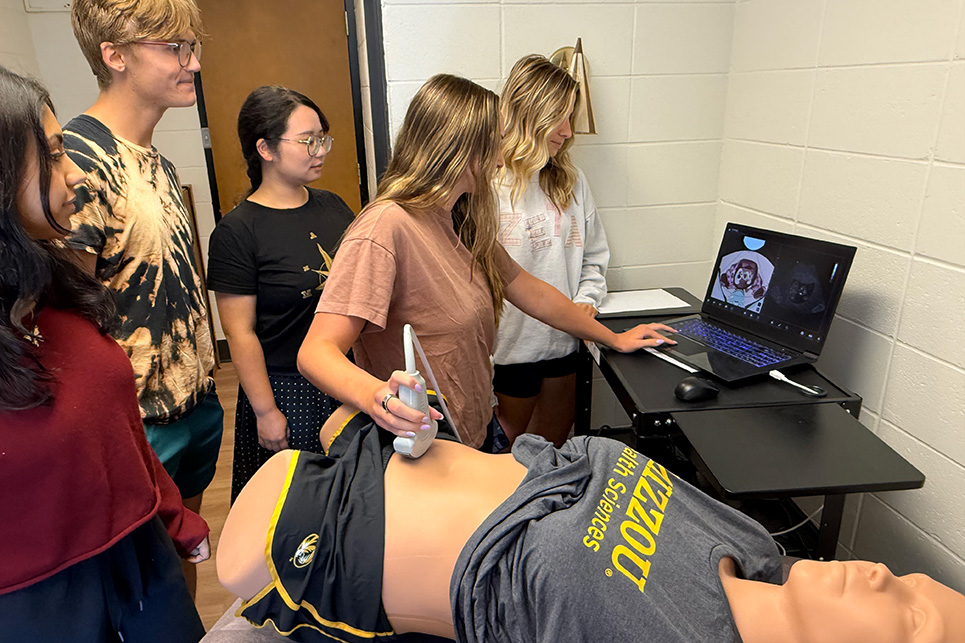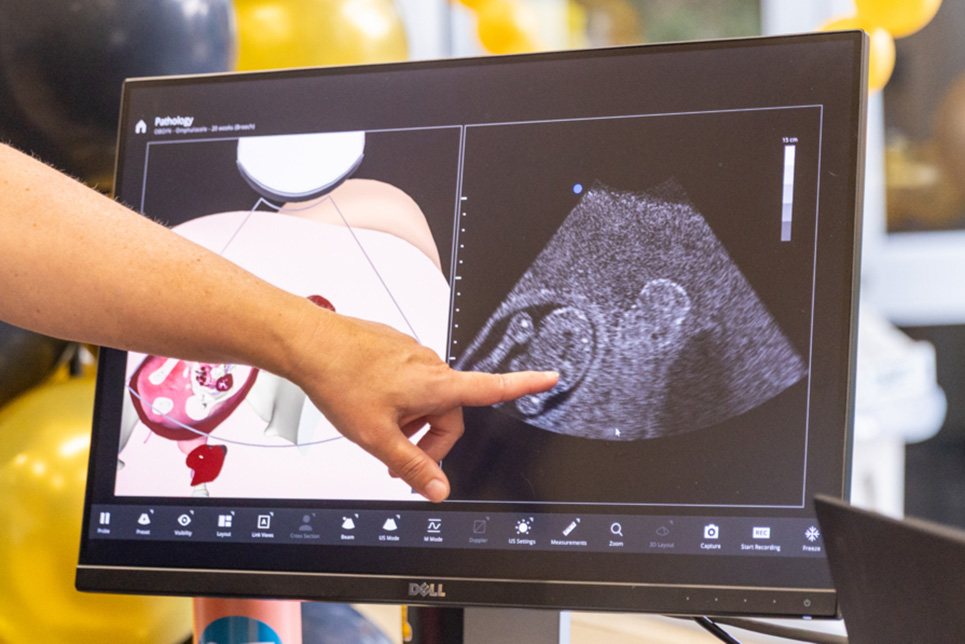Oct. 15, 2025

Story by Natalie Kientzy, chscommunications@missouri.edu
Students in Mizzou’s Diagnostic Medical Ultrasound program are gaining more hands-on experience than ever, thanks to a new Vimedix High-Fidelity Obstetric (OB) Ultrasound Simulator.
Funded through a $99,998 Mizzou Forward Student Success Enhancement Grant, the simulator is revolutionizing OB ultrasound training at Mizzou by offering students more time to build critical scanning skills before entering their clinical rotations.
While students can safely practice scanning abdomens, blood vessels and more on each other, OB ultrasound training is more complicated. Pregnant volunteers are difficult to come by, and practice sessions must be limited to one hour and supervised closely to ensure comfort and safety.
With the new high-fidelity simulator, each student now has access to nearly an hour of OB scanning practice each week — up from just 10 minutes in the past. The simulator is available during assigned lab times and for additional practice. Even students already placed into clinical rotations are welcome to return to campus to refine their skills.
“The simulator really eliminates a lot of barriers,” said Alice Townsend, DMU program director. “It’s there all day, every day, and students can get extra hours if they’re struggling with something specific, like fetal heart views.”
Working with the simulator offers students and their instructors a flexible and realistic experience. Instead of a fixed model, the simulator is equipped with sensors that ensure each scan is unique. A high-speed computer processes the movement of the ultrasound transducer relative to the mannequin and then generates artificial ultrasound images on the screen.
“The anatomy is so detailed,” DMU student Caitlyn Woodruff said. “You can change the fetal position and add malformations that you wouldn’t normally want to see in a clinical setting, but you want to be prepared in case you do. I just think it’s so helpful.”
While the program’s new technology is impressive, it also comes with a high price tag, which is why Townsend is grateful for the funding received through Mizzou Forward.
“We’re a small program meeting a big workforce need, and it’s not always easy to find funding for expensive technology like this,” Townsend said. “We’re really excited to be able to enhance our labs and provide this influential experience for our students.”

